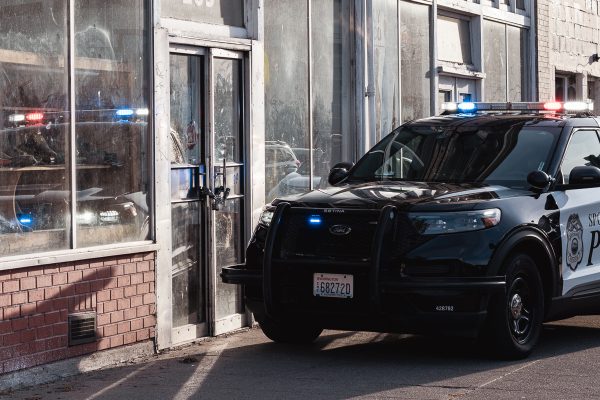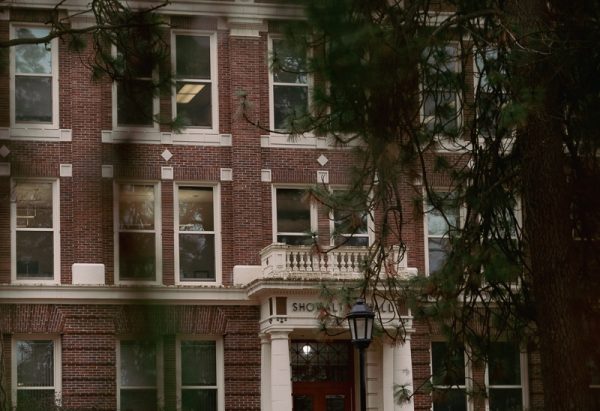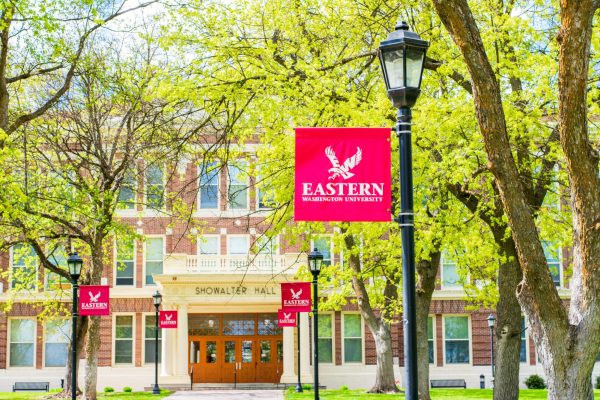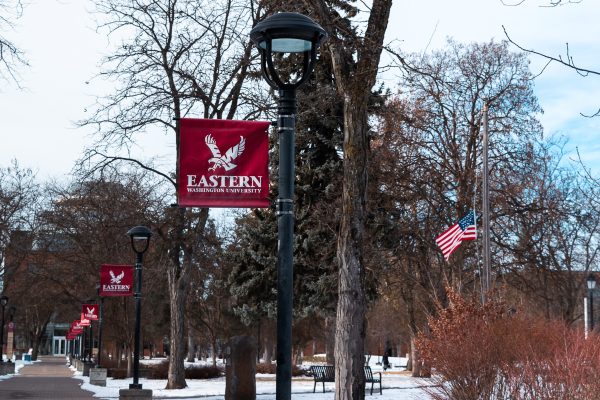EWU and WSU partner up on food product choices
A combined purchasing system helps both universities negotiate for better prices on better products
October 11, 2012
In partnership with Washington State University, EWU is taking advantage of combined purchasing of campus food products.
After researching the idea of combined purchasing last fall, in December 2011, EWU started reviewing products through April 2012 for campus dining.
“We went through almost a whole year working with WSU to maximize our purchasing power between the two schools,” Director of Dining Services Dave McKay said.
Food Services of America in the Spokane region is the main provider for both institutions. EWU purchases meat products from Ameristar Meats, Inc., a custom meat cutting and processing company in Spokane.
In having a combined purchasing system, EWU and WSU can decide on the same product, take it to the vendor and ask for the best price between two colleges.
“What we found at looking at the state purchasing contract [is] in most cases we had already negotiated better pricing. We’re already ahead of the state purchasing contract,” said McKay. “We do not have a nutritionist on our staff. WSU has two so we’re able to leverage them.”
According to him, one of the goals was to find the best product for the best price. EWU and WSU went over quality and standards of origin when looking at different food products to purchase. Farm sustainability and contents of salt, sodium and fat were also examined.
In contract with Food Services of America, EWU bids one year contracts with three years of renewal. The university has an 80/20 contract with the company, meaning 80 percent of EWU’s products are from them and 20 percent from other sources, according to EWU procurement and supply specialist Ken Ripley.
Other local food companies include Charlie’s Produce, U.S. Bakery and Spokane Bakery Supplies.
Many of the campus dining suppliers purchase their products locally as well.
Non-local food products include some of the campus chicken products, purchased from Tyson.
Last year, EWU spent approximately $3.08 million on food, beverages and paper supplies for the nine total dining operations on campus. This did not include hardware, dining or disposables. Reusable ware and hard dishes are considered smallware that EWU does not include in that cost.
Since most of the silverware and other smallware disappear, EWU spends $40,000 on smallware each year just to replenish what disappeared.
In addition, the university also does plate-weight studies where they track what food products are thrown away. What foods specifically are thrown out most and whether it was because consumers did not like the product or because they took too much are things the university considers.
Main dining locations on campus include Baldy’s, the Roost and Tawanka. According to Baldy’s Food Service Manager Barbara McAfee, Baldy’s offers the most variety due to its vegetarian options.
“This is something that is unique to any of our other operations,” McAfee said.
All dining operations in the PUB, owned by the associated students, pay rent for the building’s use, according to Ripley.
In Washington, dining services and housing are self-support auxiliaries of the state which means they do not receive state funding. McKay says they operate just like a business.
“We give five percent of every dollar … back to the general university fund to off-set costs of operation,” said McKay. “That’s something that’s state wide. It’s not just Eastern.”
Leftover products are thrown out if the food has been exposed to the public. For example, leftovers from a buffet would be thrown out because it was left out.
According to McKay, EWU does 100 percent monthly turns on inventory. Red meat is typically bought in bulk at 1,000 pounds at a time.
“Let’s say we had prime rib on the menu. We carved three of the five that we’re using but now we have these two prime ribs [left over]. So we bring them back, chill them properly and they may be sliced then a second time around for French dips sandwiches,” McKay said.
According to Ripley, the university purchases meat and produce on a daily basis. The amounts purchased-–meat or produce–varies by demand of each dining operation.
In order to maintain the fresh products, the university tracks each product’s history. How the product was cooked, how it was chilled, how long it was stored and how long it was reheated and reused are tracked.
All dining services on campus are licensed under the Spokane Regional Health District.
“Supply and demand drives everything,” said Ripley. “Our biggest thing is to serve the students.”






![Simmons said the biggest reasons for her success this year were “God, hard work, and trusting [her] coach and what she has planned.”](https://theeasterner.org/wp-content/uploads/2024/05/image1-1-1200x800.jpg)










